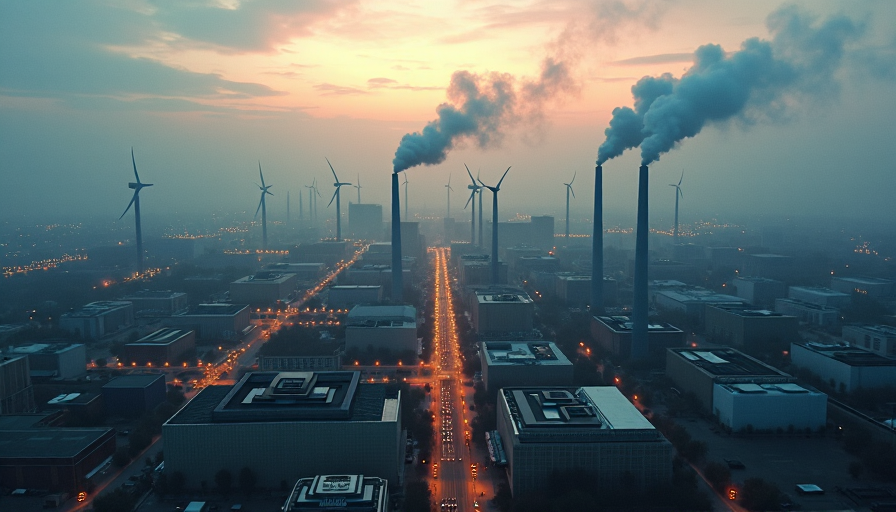
xAI Under Fire for Environmental Violations in Memphis
Elon Musk’s artificial intelligence venture, xAI, is at the center of an environmental storm in Memphis, Tennessee. Recent allegations claim that the company’s data center—referred to as the Colossus—has installed far more gas turbines than permitted, stirring concerns among local residents and environmental advocates alike.
Alleged Permitting Breach
A letter submitted by the Southern Environmental Law Center (SELC) to the Shelby County Health Department detailed that aerial imagery and supporting data indicate the presence of 35 gas turbines at the xAI facility. However, xAI had sought permits for only 15 turbines to operate on a temporary basis. The SELC pointed out that these extra turbines, which generate a massive 421 megawatts of power (comparable to a full-scale TVA power plant), were installed without the necessary air permits.
Environmental and Health Implications
The letter emphasizes that the additional turbines reportedly emit between 1,200 and 2,000 tons of smog-forming nitrogen oxides (NOx) each year. Elevated NOx levels are known precursors to ozone formation and have been linked to increased risks of respiratory illnesses. Community members, already burdened by industrial pollution, fear the impact on their health. At a recent public hearing, local resident Easter May Knox expressed her anguish, highlighting her family’s struggle with chronic respiratory issues and the longing for clean air.
- Key Concern: The excessive turbines may have violated the Clean Air Act and stringent local permitting requirements.
- Community Impact: Residents worry about the long-term health risks from persistent industrial emissions.
Corporate Ambitions Amid Regulatory Challenges
Founded in 2023 by Elon Musk, xAI has rapidly positioned itself as a formidable contender in the field of artificial intelligence. With ambitions to rival OpenAI and a recent high-profile acquisition of the social network X, the company is making bold moves both in technology and the marketplace. The data center in Memphis, which now uses a vast number of gas turbines, was initially designed to train AI models using Nvidia H100 processors. Although xAI intends to eventually transition to power provided by local utilities like Memphis Light, Gas and Water and the Tennessee Valley Authority, it remains unclear when this shift will occur.
Musk, who also helms Tesla and SpaceX, has been actively involved in cutting government regulations. His hands-on approach in Washington, D.C., underscores his commitment to a less restrictive business environment—even though previous ventures have occasionally faced scrutiny for environmental practices.
Community and Regulatory Response
Amanda Garcia, an attorney with SELC, stressed that the Shelby County Health Department holds the authority to enforce air quality regulations and ensure that xAI complies with the law. During a public hearing, residents decried the absence of senior managers like Brent Mayo from xAI, who was expected to address their concerns regarding the company’s technical infrastructure and environmental impact.
The mounting tension in Memphis symbolizes a broader debate: balancing rapid technological advancement and economic growth with responsible environmental stewardship. As xAI continues its ambitious journey, the outcome of this dispute may set a precedent for how industrial expansion is managed within urban settings.
Looking Ahead
The unfolding situation in Memphis serves as a poignant reminder of the intricate dance between innovation and regulation. While xAI pushes forward in the realm of artificial intelligence, local communities and environmental watchdogs remain vigilant, ready to hold the company accountable. The next steps taken by both xAI and regulatory authorities will be closely observed, as they are likely to influence future policies on industrial permits and environmental protection.
Note: This publication was rewritten using AI. The content was based on the original source linked above.